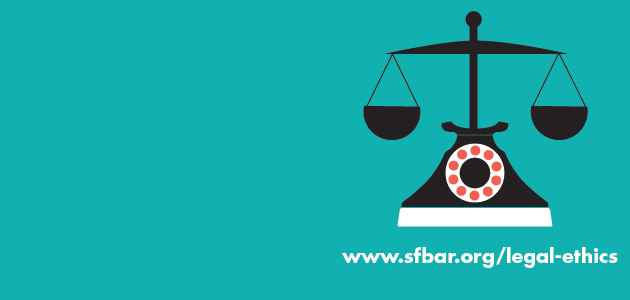As a legal ethics and risk management advisor, I am often asked whether litigation between an attorney and client is permitted during engagement on another matter. This situation often arises as to legal fee disputes; however, lawsuits between in-house or…
Beware of CLE Requirements
All active California lawyers must complete 25 hours of continuing legal education (CLE) every three years, or risk being placed on inactive status. (Bus. & Prof. Code §6070, subd. (a).) Additionally, misrepresenting that one has completed those hours may result…
Gifts from Clients? Is it OK? Maybe
Gifts are generally given as an act of kindness, as a token of appreciation based on relationships. As attorneys, many of us have established long standing relationships with our clients over a number of years; and in some cases have…
Legal Ethics Corner: Ethical Issues in Compensating Contract Attorneys
The use of contract attorneys is commonplace in the practice of law today. Large law firms and solo practitioners utilize contract attorneys to supplement their own staff resources for transactional and litigation tasks. Despite a general requirement that a client…
Attorney-Client Billing Statements Are Protected By Attorney-Client Privilege Regardless of Whether They Contain Legal Opinions or Advice
As a matter of first impression, the Court of Appeal recently held in County of Los Angeles Board of Supervisors v. Superior Court of Los Angeles County (ACLU), 235 Cal.App.4th 1154 (2015) that invoices confidentially transmitted from an attorney to…
May a California lawyer ethically represent a client in respect to a medical marijuana enterprise in California?
Recognizing the conundrum that conflicting state and federal laws create in California in light of the Compassionate Use Act, The Bar Association of San Francisco Legal Ethics Committee composed the first bar association opinion on ethical considerations for California attorneys…
Legal Ethics Corner: Attorneys Serving as Investigators Beware
Attorneys investigating matters in connection with the rendering of legal services to their clients is nothing new. California Code of Civil Procedure section 128.7 requires considerable due diligence before filing a lawsuit. In addition to such routine and ancillary inquiries,…
Does the Duty of Confidentiality Prevent an Attorney from Disclosing a Former Client’s Confidences in a Fee Collection Action?
Occasionally an attorney must sue a former client to collect outstanding fees and costs. Often the evidence critical to the attorney’s claim includes the secrets of the former client. May the attorney reveal those confidences necessary to prosecute the collection…
Legal Ethics Community Will Greatly Miss Paul Vapnek
The Bar Association of San Francisco’s Legal Ethics Committee sends our heartfelt sympathies to the friends and family of Paul Vapnek, a renowned legal ethics and intellectual property lawyer, who passed away on February 28, 2015. After clerking for U.S.…
Legal Ethics Corner: California Court of Appeal Upholds “In-Firm” Privilege
California recently joined a growing list of states that have issued published opinions recognizing an in-firm privilege. See, e.g., Moore v. Grau, 2014 N.H. Super. LEXIS 20 (N.H. Super. Ct. Dec. 15, 2014); Crimson Trace Corp. v. Davis Wright Tremaine…
New Civility Guidelines for Professional Conduct
In June 2014, the federal courts of the Northern District of California adopted “Guidelines for Professional Conduct,” also called “Civility Guidelines.” The Guidelines describe an attorney’s “duty of professionalism” as including “civility, professional integrity, personal dignity, candor, diligence, respect, courtesy,…
Legal Ethics Hotline: Get Help and/or Give Help
One highly valued offering of The Bar Association of San Francisco is its Legal Ethics Committee Hotline. The hotline is staffed by volunteers from the Legal Ethics Committee, many of whom have legal practices that regularly involve professional responsibility, legal…













